Regenerative Endodontics: A Cutting-Edge Root Canal Treatment
The dental specialists at Fairlawn Endodontics are committed to providing the best treatments available for our patients. Our practice has a team of specialists in microscopic endodontics, a field of dentistry that uses microscopes to effectively and successfully perform complex procedures.
As endodontists, we focus on saving your natural teeth when they are damaged or decayed. Through our years of training and experience, we can offer treatments that remove infections from the roots of your teeth, preventing further complications and reducing symptoms.
We are always looking for the most advanced procedures available, and are proud that we can offer our patients regenerative endodontic therapy. This is one of the most exciting developments in our field.
Understanding the Purpose of Regenerative Endodontic Therapy
Regenerative Endodontics is a procedure that can be performed in not fully formed teeth that allows for continue root maturation and apical closure.
There are three layers to a tooth. Pulp is the innermost layer, and it is usually protected by the hard enamel, or outer layer. However, decay or damage to the enamel can cause bacteria to infect the pulp of a tooth.
Your pulp also needs a continuous supply of blood to stay healthy. If a patient loses a tooth, it can sometimes be preserved by quickly reimplanting the natural tooth back into the gums. The pulp can stay healthy if it regains its blood supply. However, sometimes the pulp begins to die. If the pulp in a tooth dies, this is considered pulp necrosis.
Whether through infection or necrosis, unhealthy pulp can cause pain and discoloration. This pulp needs to be treated or removed. Otherwise, severe complications can occur such as additional bone decay, gum disease, or an abscess.
Some pulp necrosis, especially when caused by trauma in young patients, can cause a permanent tooth’s roots to be underdeveloped and increase the probability of tooth loss.
Now, with advances in endodontics, regenerative endodontic therapy is an option for treating immature teeth with necrotic or infected pulp.
Benefits of Regenerative Endodontics
Traditionally, a patient has two options for treating necrotic or infected pulp. These options are a root canal, where a patient’s natural pulp is removed and replaced with a rubber-like material, or extraction of the tooth.
However, regenerative endodontic therapy provides an exciting, cutting-edge option in which necrotic immature permanent teeth can continue root development, increase thickness in the dentinal walls and apical closure. These developments in the regeneration of a functional pulp-dentin complex have a promising impact on efforts to retain the natural dentition, the ultimate goal of endodontic treatment.
Regenerative endodontics can provide an alternative or supplement to traditional root canal treatment in certain patients. It can also help save patients from losing their teeth due to pulp necrosis after injury or trauma.
These benefits are particularly inspiring in the field of endodontics. Our goal has always been to preserve a patient’s natural tooth. Now, with regenerative endodontics, we can provide a way for patients to preserve even more of their natural teeth.
Contact Fairlawn Endodontics to Learn More
Our specialists in microscopic endodontics are committed to offering regenerative endodontic therapy when we believe it can effectively help a patient save their natural tooth. Contact us today to learn if regenerative endodontic therapy is right for you.


